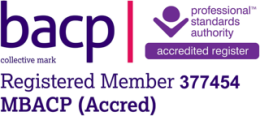Welcome to Hayley Ball Counselling
Providing face-to-face and online counselling to individuals and couples in Wimborne, Dorset, also seeing clients from Verwood, Ferndown and Bournemouth
Counselling in Dorset
Hello and welcome.
My name is Hayley and I am an integrative counsellor with a relational approach who specialises in domestic abuse, sexual and complex trauma.
Searching for a therapist can feel daunting, I can remember when I had to do it for myself.
I bring a warm, down-to-earth approach to my practice, which has been shaped by years of working with people and my life experience.
I have worked with a diverse range of clients, all of whom have different reasons for seeking therapy. As well as providing face-to-face sessions, I see clients from throughout the UK and worldwide via telephone or online counselling.
Whatever your reason for finding yourself here, I can offer you a space to feel listened to and not judged.
A trusting relationship with a trained professional can enable you to be heard in ways that may feel new to you.
This can give you a chance to reflect on the challenges you face in your life and gain new perspectives to make a difference for yourself.


Making the decision to see a counsellor is a big step to take - but it can be a positive one. Please read on to find out more about how I could help you.
How Can Counselling Help?
Life brings many challenges, and it is understandable that at times we might look for support in facing them. As a counsellor my role is to provide space and guidance to help you on your journey of self-discovery; to enable you to examine your life and make new, meaningful choices within it.
I offer a chance to reflect on the difficulties or problems you are experiencing in a safe and confidential environment, with someone from outside your day-to-day life. Together we can explore your situation in a way that leads to fresh perspectives - and perhaps a new understanding of yourself. Counselling isn’t about giving you solutions or advice, but empowering you to make your own changes.
People come to me for help a wide range of issues. Here are a few of the more common difficulties that can be supported through counselling:
Feelings of stress or anxiety
Panic attacks
Relationship problems
Grief, loss or bereavement
Problems with addiction
Trauma and post-traumatic stress
Abuse
Depression
Problems with confidence or self-esteem
Anger management
Issues relating to sexuality
Difficulties at work or in retirement
Problems with family
Contact Me
Feel free to contact me if you have any questions about how counselling works, or to arrange an initial assessment appointment. This enables us to discuss the reasons you are thinking of coming to counselling, whether it could be helpful for you and whether I am the right therapist to help.
You can also call me on 07525 795743 if you would prefer to leave a message or speak to me first. I am happy to discuss any queries or questions you may have prior to arranging an initial appointment.
MY LOCATION
I work from a private room in Wimborne, Dorset and see clients face-to-face from the surrounding areas including: Verwood, Ferndown and Bournemouth.
I also offer online and telephone counselling to people throughout the UK.
FEES & AVAILABILITY
I offer a free 15 minute phone call prior to an appointment.
My fees are:
£65 for a single session (50 minutes)
£85 for a couples session (75 minutes)
Supervision £60 per hour
QUALIFICATIONS
- Certificate in Counselling Skills - 2014
- Advanced Diploma in Integrative Counselling - 2019
- Diploma in Creative Arts Therapies - 2022
Supervision
Supervision provides a confidential space for professionals to reflect on their work. Reflection helps individuals to overcome problems. Problems can arise when we do not take the time to reflect.
A trusted supervisory relationship can provide a safe space for you to bring difficult issues and possible mistakes in your practice which can inhibit both personal and professional growth.
I believe that a supervisory relationship that has equality, warmth and safety helps to reduce anxiety and enables a supportive space for reflective practice.
Fostering humility aids beneficence to both you as a supervisee and your clients.
I offer individual and group supervision. I work both privately and for organisations either online or in person.

Frequently Asked Questions
Counselling is usually a good way to help with a current problem; something that can be discussed and - hopefully - resolved within a limited number of sessions. Over a certain number of weeks the understanding of the problem improves and away forward becomes clear. Therapy often describes work that goes a bit deeper, towards more substantial life issues and problems having a deeper effect on the client’s life. Therapy often requires a long-term approach, so the number of sessions can be open-ended.
Which option is most suitable depends on the client and the difficulties they are facing. In some cases counselling works well as an ongoing, longer-term option - or therapy can manage to resolve an issue in just a few sessions.
How long a period of counselling lasts will vary from person to person and depend on the depth of the issues they are facing. For some people a couple of sessions helps to bring their problems into focus, and they feel ready to move forward; other problems may require more of an open-ended approach.
Before we begin any work we will agree on the number of sessions we’ll undertake, and at the end of that number review our progress. As long as we both agree further therapy will be of benefit to you, sessions can continue.
My aim is to offer a first appointment - known as an initial assessment - within 1-2 weeks. Then we would arrange a set number of counselling sessions to take place at the same time every week, that is convenient for you and where I have availabity. How quickly these sessions can begin will depend on the availabity of that free ‘slot’.
Everything that is said within the counselling room is private - this is one of the main ways counselling and therapy differ from talking to a friend or relative. Once you are comfortable with the format of weekly sessions and the safe space they provide, you will find the freedom to speak in confidence is of great value.
Note that there are some situations where you may be a risk to yourself or others, and there the law requires that I notify an authority; in these cases I may not be able to keep total confidentiality. Breaking confidentiality is very rare though, and only happens after the person concerned has been informed.
Usually I am asked this question by people who are nervous about entering into counselling, or when they are looking for support in coming to see a therapist. This anxiety is understandable, but a key aspect of therapy is that you should feel free to talk about any issues you feel are important to you. Having someone else with you who can be connected those issues makes this opening-up more difficult, so for this reason I do not see clients accompanied by friends or family.
© Hayley Ball
Powered by WebHealer